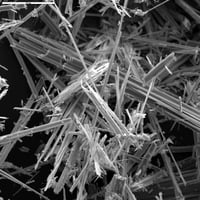Learn how to detect and remediate asbestos safely after a natural disaster. This guide will provide...
Improving Indoor Air Quality: A Comprehensive Guide
Discover the importance of indoor air quality and learn how to improve it in your business in Australia.
Understanding the impact of indoor air quality on business productivity
Indoor air quality plays a crucial role in the productivity of your business in Australia. The air quality inside your building can directly impact the health and well-being of your employees, which in turn affects their productivity and performance. Poor indoor air quality can lead to various health issues, such as respiratory problems, allergies, and fatigue, hindering your employees' ability to work efficiently. Contaminated air can also contribute to an unpleasant and uncomfortable working environment, decreasing motivation and morale among your workforce.
To ensure optimal business productivity, it is essential to prioritise and improve indoor air quality in your workplace. You can create a conducive atmosphere that promotes employee well-being and productivity by providing a clean and healthy indoor environment. Investing in measures to enhance indoor air quality benefits your employees' health and performance and demonstrates your commitment to their well-being, which can boost employee satisfaction and loyalty.
Therefore, understanding the impact of indoor air quality on business productivity is crucial for the success of your business in Australia. By taking proactive steps to improve air quality, you can create a healthier and more productive work environment for your employees. Australian Standards for Air Handler Hygiene (AS3666) can be found here

Identifying common indoor air pollutants in Australian buildings
Several common indoor air pollutants in Australian buildings can significantly affect air quality. It is essential to identify these pollutants to address and mitigate their impact on indoor air quality effectively.
One common indoor air pollutant in Australian buildings is volatile organic compounds (VOCs). These are emitted by various sources such as cleaning products, paints, furniture, and carpets. VOCs can contribute to respiratory irritation, headaches, and dizziness. Another common pollutant is mould, which can thrive in humid environments and release spores that can cause allergic reactions and respiratory issues. Additionally, dust mites, pet dander, and pollen are common allergens found in indoor air in Australia.
By identifying these common indoor air pollutants, you can take targeted measures to reduce their presence and improve the overall air quality in your building. Regular inspections, proper ventilation, and air purifiers can help mitigate the impact of these pollutants, creating a healthier indoor environment for your employees. HVAC Hygiene Best Practice Guidelines are available from AIRAH.

Implementing effective ventilation systems for optimal air quality
Effective ventilation systems play a vital role in maintaining optimal indoor air quality in your business in Australia. Proper ventilation helps remove stale air, moisture, and pollutants from the indoor environment, ensuring a constant supply of fresh and clean air.
There are several ventilation options available that you can consider for your building. One standard method is natural ventilation, which utilises windows, vents, and openings to allow fresh air to enter and circulate throughout the space. Natural ventilation can be enhanced by strategically placing windows and vents to facilitate proper airflow.
Another option is mechanical ventilation, which uses fans and air-handling units to control and distribute air. Mechanical ventilation systems can provide a more controlled and consistent airflow, ensuring a sufficient supply of fresh air even in areas with limited natural ventilation.
It is essential to consult with HVAC professionals to find the best ventilation system for your specific business needs. By implementing effective ventilation systems, you can improve indoor air quality and create a healthier work environment for your employees. ASHRAE provides some useful guidance on their website.
Utilising UV disinfection and filters to remove pollutants
UV disinfection and filters are practical tools for removing pollutants and ensuring clean indoor air in your business in Australia. UV disinfection systems use ultraviolet light to destroy airborne bacteria, viruses, and other microorganisms that can compromise indoor air quality. These systems are particularly beneficial in healthcare facilities, where maintaining sterile and clean air is crucial.

In addition to UV disinfection, air filters are essential for capturing and trapping particles and allergens suspended in the air. High-efficiency particulate air (HEPA) filters are widely used and can effectively remove airborne pollutants, including dust, pollen, pet dander, and mould spores. Regularly maintaining and replacing these filters can ensure optimal performance and improve indoor air quality.
By utilising UV disinfection and filters, you can significantly reduce pollutants in the air, creating a healthier and safer indoor environment for your employees.
Maintaining a clean and healthy indoor environment
Regular cleaning and maintenance practices are crucial to maintaining a healthy indoor environment. Dusting, vacuuming, and mopping should be done regularly to remove accumulated dust, dirt, and debris. Please pay special attention to areas prone to harbouring pollutants, such as carpets, upholstery, and air ducts.
In addition to regular cleaning, it is essential to control humidity levels in your building. Excessive moisture can grow mould and create an ideal environment for allergens. Use dehumidifiers or air conditioners to maintain optimal humidity levels and prevent the growth of mould and mildew.
Furthermore, promoting good hygiene practices among employees can contribute to a cleaner indoor environment. Encourage proper handwashing, provide hand sanitisers, and promote a culture of cleanliness and tidiness.
Maintaining a clean and healthy indoor environment can prevent the accumulation of pollutants, reduce the risk of respiratory issues, and improve overall air quality in your business.
For any support or advice, contact our Opira Team on 1300 157 969 or email Solutions.


